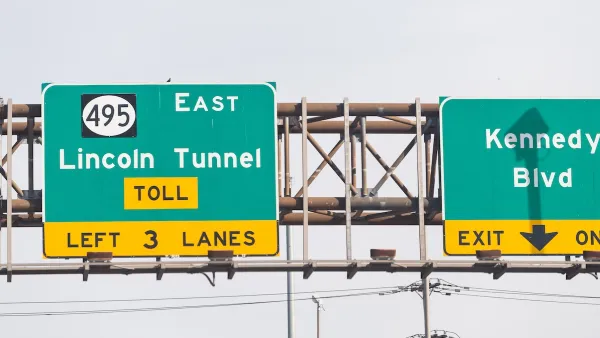No one wants to be stuck in traffic. But next time you find yourself pounding the steering wheel out of frustration just think about Eric Dumbaugh's findings regarding the connection between congestion and economic productivity.
Studies identifying the costs of congestion periodically make news headlines across the United States. "The common interpretation of such statistics," notes Dumbaugh, "is that our cities and regions would be so much more economically productive if only we could eliminate the congestion that occurs on urban streets." And the logic flowing from this argument has no doubt been used to support countless road building and widening projects across the country.
With the help of research assistant Wenhao Li, Dumbaugh sought to test the assertion that vehicle delay had a negative effect on urban economies. And what did he find? "As per capita delay went up, so did GDP per capita. Every 10 percent increase in traffic delay per person was associated with a 3.4 percent increase in per capita GDP."
"The relationship is almost certainly not causal. Instead, regional GDP and traffic congestion are tied to a common moderating variable - the presence of a vibrant, economically-productive city. And as city economies grow, so too does the demand for travel. People travel for work and meetings, for shopping and recreation. They produce and demand goods and services, which further increases travel demand. And when the streets become congested and driving inconvenient, people move to more accessible areas, rebuild at higher densities, travel shorter distances, and shift travel modes."
"None of this is to suggest that there is no benefit in having our transportation system operate efficiently. But automobile congestion, vehicle delay, and their proxy, level-of-service, are not measures of system efficiency. Nor are they measures of economic vitality. They are nothing more or less than measures of how convenient it is to drive an automobile."
FULL STORY: Rethinking the Economics of Traffic Congestion

Analysis: Cybertruck Fatality Rate Far Exceeds That of Ford Pinto
The Tesla Cybertruck was recalled seven times last year.

National Parks Layoffs Will Cause Communities to Lose Billions
Thousands of essential park workers were laid off this week, just before the busy spring break season.

Retro-silient?: America’s First “Eco-burb,” The Woodlands Turns 50
A master-planned community north of Houston offers lessons on green infrastructure and resilient design, but falls short of its founder’s lofty affordability and walkability goals.

Test News Post 1
This is a summary

Analysis: Cybertruck Fatality Rate Far Exceeds That of Ford Pinto
The Tesla Cybertruck was recalled seven times last year.

Test News Headline 46
Test for the image on the front page.
Urban Design for Planners 1: Software Tools
This six-course series explores essential urban design concepts using open source software and equips planners with the tools they need to participate fully in the urban design process.
Planning for Universal Design
Learn the tools for implementing Universal Design in planning regulations.
EMC Planning Group, Inc.
Planetizen
Planetizen
Mpact (formerly Rail~Volution)
Great Falls Development Authority, Inc.
HUDs Office of Policy Development and Research
NYU Wagner Graduate School of Public Service



























